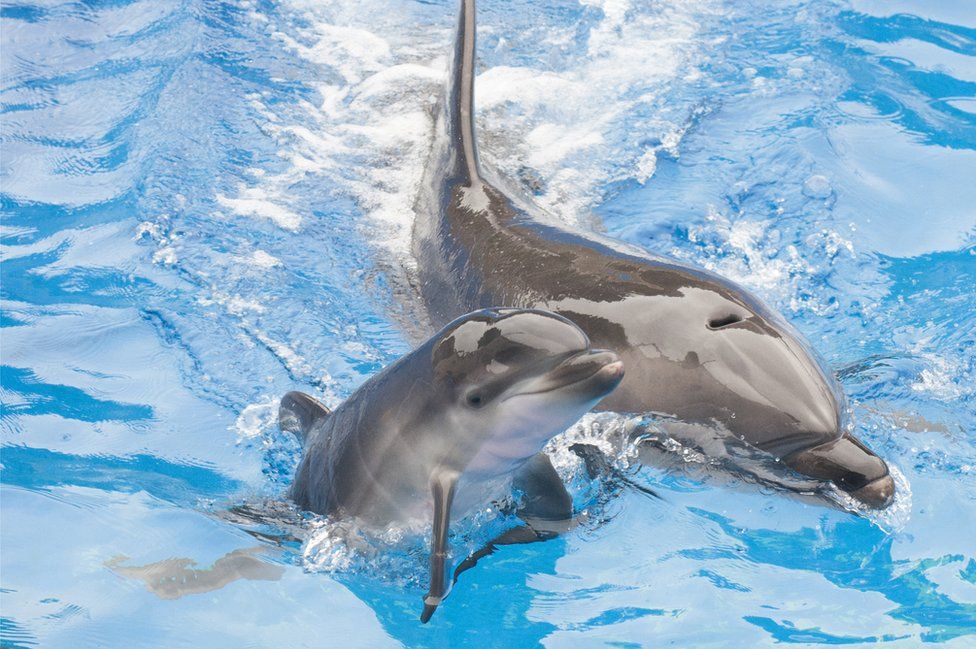France bans captive breeding of dolphins and killer whales
- Published

France has banned the breeding in captivity of dolphins and killer whales, in a move hailed by campaigners as a major victory.
The government also banned the keeping of all whales, dolphins and porpoises in captivity, except for orcas and bottlenose dolphins already held.
The association of French zoos complained they had not been consulted on the ban.
But animal rights activists said it was a "historic French advance".
The ban on captive breeding would eventually lead to the end of "marine circuses" in the country, a joint statement from five conservation groups including Sea Shepherd said.
Environment Minister Segolene Royal had signed a version of the legislation on Wednesday, but decided to tighten the rules further and ban captive breeding completely after finding out that "some animals were drugged" in aquariums, the ministry told the AFP news agency.
Jon Kershaw, who heads the Marineland Antibes park in the French Riviera, told local media that government's decision was a "bombshell".
The new rules also ban direct contact between animals and the public, including swimming with dolphins, and require pools holding the animals to be made significantly larger.
Establishments have six months to comply with some of the rules, and must expand their pools within three years.
- Published13 October 2015
- Published6 January 2017
- Published25 February 2016
- Published2 September 2015